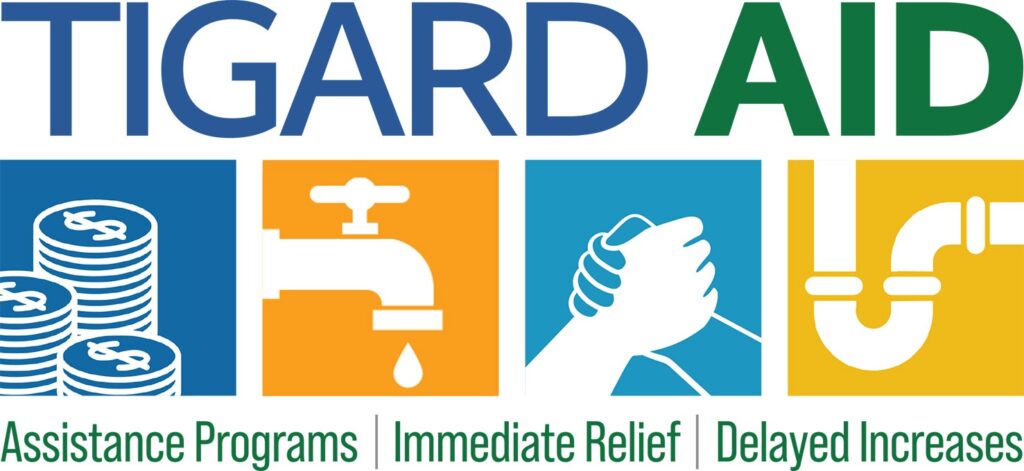The program designed to help Tigard water and utility customers hit by COVID-19 related unemployment will significantly expand to include those also suffering from lost wages and work hours.
The Tigard City Council approved a resolution unanimously at its Sept. 22 meeting to boost the Tigard AID Utility Billing Credit Program to provide full credit to residential utility customers and up to $500 in credit to business customers affected by the COVID-19 pandemic. Crucially for customers who continue to suffer economic hardship, the aid program will be retroactive to its creation, allowing both new and existing recipients to take advantage of the new terms.
Tigard AID was originally set in motion back in May as the COVID-19 pandemic took hold. The program allocated $750,000 to provide a monthly utility credit of up to $40 per month for residential utility customers served by Tigard who were unemployed due to the pandemic. It also provided a similar credit for commercial customers.

To date, however, the aid program has been underutilized. City officials estimate roughly 10 percent of its 16,000 or so residential utility customers could be eligible for aid. Yet, up until last month only a fraction of that number – 162 customers in all, 148 of them residential – had applied for relief.
“I’m pretty troubled by the fact that we’re not getting aid to the people who need it, in part because there are folks with apartments and other places where they are not directly paying the utility bills,” Mayor Jason Snider said at a Sept. 15 Council workshop.
The new resolution expands the program both in terms of the credits provided and who is eligible to receive them. Previously, only customers who lost employment entirely were eligible for aid. But the program has now expanded to include those who may still be employed, but have lost wages because of the pandemic.
Eligible residential customers will now be able to receive credit up to the full amount of their monthly City utility bill, while commercial customers could get up to $500 per month in utility credits.
The program originally provided $750,000 for utility assistance, another $50,000 for low-income households to be distributed through St. Vincent DePaul and another $1.4 million for all Tigard utility customers in the form of delayed rate increases. A total of $2.2 million in funding was put toward this effort. This money will continue to be disbursed through Jan. 1, 2021 or until the funds are exhausted, whichever comes first.
“It’s taken time for people to learn about the program, and unemployment is not uniformly distributed,” City Finance and Information Services Director Toby LaFrance said at the Sept. 15 workshop.
Underemployment is also higher than anticipated, LaFrance noted, and this is a segment of the population that was not initially included in the program.
Since the program started in May, efforts have been made to increase public awareness of the city program and a similar $3 million Washington County program funded by the federal CARES Act. Both are intended to help customers impacted by the pandemic pay the full amount of utility bills racked up between March 1 and Dec. 30, 2020.
The City plan will be in effect through Dec. 31, or until the $750,000 in funding for the program runs out, whichever comes first. The City will also be waiving late fees and shutoff actions for the duration of the program.
“The plan right now is anybody who is in arrears, we would take care of prior months as well,” LaFrance said. “The ability to qualify is not based on how much water they use, it’s whether they’ve been impacted by COVID.”
Further action on this topic is likely to come in October, when the council will consider another resolution aimed at providing utility relief to customers who live in multifamily housing, but are not direct customers of City utility services.
“Staff is working with legal, bond counsel and with our rate analysts to make sure that we bring forward to Council a proposal that will minimize a risk to the city that anyone would protest this use,” LaFrance said at the Sept. 22 meeting.
Customers in this category would also be eligible for retroactive relief, LaFrance said.
To learn more about available utility aid programs, visit www.tigard-or.gov/aid.






















